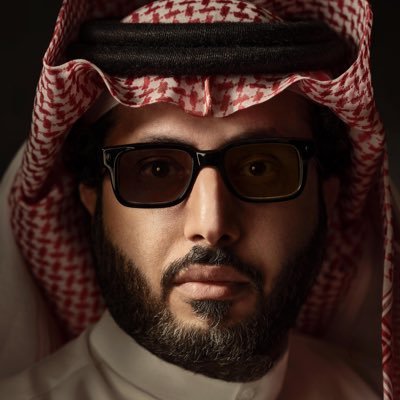The Sports Czar of Vision 2030: Turki Alalshikh (pictured) is the Chairman of Saudi Arabia's General Entertainment Authority and is boxing’s billion-dollar patron. He has already done what most promoters could not: he has made Saudi Arabia the capital of world boxing. Undisputed heavyweight fights, incredibly high purses and historic events have all flowed through Riyadh, Saudi Arabia under his watch. But his ambitions extend beyond boxing — and understanding that bigger picture is the key to seeing where his power comes from. Turki is not just a boxing fan. He is a close advisor to Saudi Crown Prince Mohammed bin Salman. His mission is tied to Saudia Arabia's Vision 2030 — Saudi Arabia’s master plan to diversify its economy away from oil by investing in tourism, culture, and global prestige. Sports are central to this. From soccer star Cristiano Ronaldo and the Saudi Pro League to LIV Golf, WWE, and Formula 1 racing, Saudi Arabia has spent billions positioning itself as a global entertainment hub. Boxing fits perfectly into this playbook — a sport with history, star power, and global reach.
Unlike Dana White, who thrives on absolute control, Turki has diversified his investment by spreading his influence across the boxing landscape in the following ways:
Ring Magazine + Ring Belt → historic legitimacy;
Public Investment Fund (PIF) → virtually unlimited capital;
TKO/Endeavor investment → exposure to UFC and Dana White’s empire;
The Underdog series → a potential pipeline for tomorrow’s stars;
Riyadh Season → branding that ties boxing to tourism and cultural prestige;
Multiple promoters → Hearn, Warren, Arum, De La Hoya — have all given seats at the table, at least for now.
This diversification makes him more flexible. If one path falters — a promoter partnership collapses, a star underperforms, or the UFC model gains traction — Turki is still protected by his other investments. It’s a hedge against risk, and it makes him far more adaptable than White.
For all his strengths, Turki still lacks one critical piece: a ruthless matchmaker. Historically, philosophies like the one still espoused by Russell Peltz defined what matchmaking discipline means in boxing. Peltz doesn’t care about records or protecting prospects. He believed in 'fight-for-your-life' matchups where the cream always rose to the top. That’s how careers like Antonio Tarver’s were forged — not by handpicking easy wins, but by surviving tough tests.
By contrast, many Saudi undercards today are padded with what Turki himself calls 'Tom and Jerry fights' — mismatches that add cost but little value. The main events are historic, but the rest of the show sometimes feels like filler. For casual fans, that’s acceptable; for hardcore fans and broadcasters, it undermines credibility.
Without a disciplined matchmaker, Turki risks building an empire of spectacle without substance. If he ever empowers a 'Russell Peltz of Riyadh' — someone who makes every fight matter — his model could become not just spectacular, but sustainable. Until then, his system remains vulnerable to bloated costs and underwhelming cards.
Can Two Kings Share a Throne?
Dana White and Turki Alalshikh are both alpha personalities, used to getting their way. Now they sit at the same table under the TKO/Paramount+ partnership. Can they share power? Or will Nick Khan, the master dealmaker who workd with White under the TKO umbrella, be forced to play peacemaker between the gambler and the czar? This uneasy alliance could shape the sport as much as any fighter inside the ropes.
White & Turki: The Power Equation
White brings the UFC playbook — centralized control, star-making power, and a willingness to take on entrenched bodies. He’ll test whether fans embrace 'league belts' as legitimate.
Turki’s brings unmatched financial muscle and political backing from Saudi Arabia, ensuring high-profile events continue flowing to Riyadh and Jeddah.
Joint Power: Together, they could build a rival ecosystem to traditional boxing within three years — if they secure enough fighters.
The current risk factors are whether fighters will resist working with White because the pay or his terms are too restrictive, or if fans and media will dismiss Dana's planned title belts as 'fake.'
Coming Next: Promoters & Sanctioning Bodies Under Siege — can the old guard survive in a world reshaped by White and Turki?
